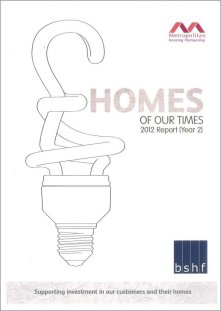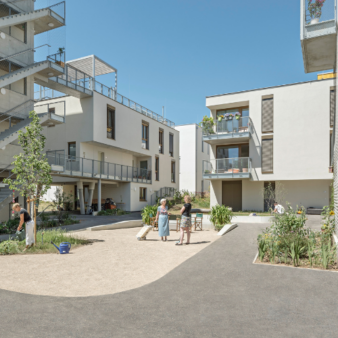
BSHF is funding this research project with a leading social housing provider, Metropolitan Housing Partnership (MHP) which seeks to identify the sustainability impacts of how people live in their homes.
The research comprises a three-year longitudinal study on the environmental impacts of how 25 households, drawn from different home types, use their homes. Both qualitative and quantitative data are being collected. Part of the research is focusing on following the home, not the resident. It is important, for example, to understand the experience of a resident moving into a ‘greener’ home as the second or third tenant (rather than the first when all the support for the new technologies is still at hand). Three annual fieldwork questionnaires are being carried out per property. The research seeks to determine what the experience and learning is from those living in the home, as well as those with responsibility for managing and maintaining the home.
The report of the second year’s research can be found in this document. The research report from Year 1 can be found in our publications. The key findings from the second year’s survey are that:
- Despite an even greater level of cost consciousness among respondents, the average estimated energy costs per household have increased by nearly £200 from £785 in the 2010 survey to £982 in 2011.
- Although over 70 per cent of households identified that they had some form of programmer or timer, only 58 per cent of those households were actually using them
- There is an on-going challenge for MHP in how it provides advice and support around heating controls and the way that it relays information.
- Energy Performance Certificates are designed to help new occupants of a property understand the energy performance of a home, but there is continuing evidence that they are not well understood and people do not seek out or value the information they contain.



Join the discussion